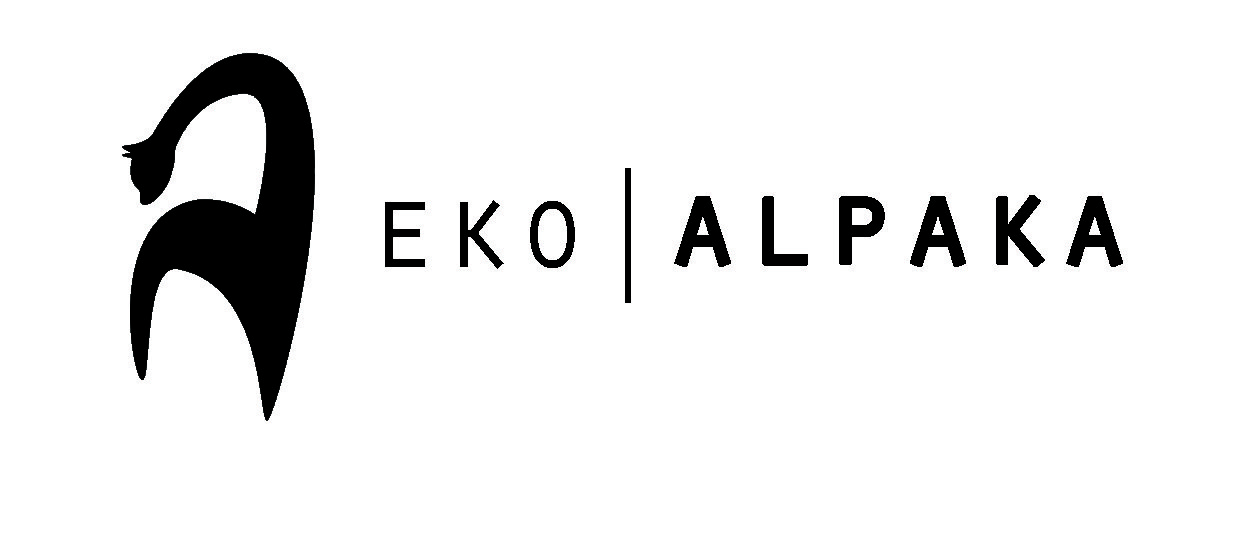EKOALPAKA ALPACA CLOTHING & SUSTAINABILITY
EKOALPAKA
is a brand which ensures that all alpaca fibre used in the production of garments meets specific criteria to be endorsed as sustainable.
The criteria for sustainability :
cruelty free animal fibre
chemical pesticide free pasture
animal shelter in barns from all adverse weather
circular system of production
reduced carbon footprint (locally sourced locally produced)
The word “sustainable” is used all the time. It means different things to different people.
For us #sustainablefashion starts with the source of the raw material and the cost to the environment when producing clothing. Manufacturers make choices based on consumer demand for price and convenience. The negative impact on the environment is of little concern
All clothing is made from raw material derived from animals, plants and/or petroleum based chemicals. There is an environmental cost to each garment you buy.
COTTON : While cotton is a natural fibre that can biodegrade at the end of its life it is also one of the most environmentally demanding crops. Cotton farming also uses high levels of pesticides and toxic chemicals that seep into the earth and water supplies. It takes around 20,000 gallons of water to make a single pair of jeans and up to 3,000 to make a T-shirt
POLYESTER (lycra, spandex, microfibre, nylon, acrylic): is created through an energy-intensive heating process requiring large quantities of water for cooling. If not managed properly this can result in groundwater levels dropping. These synthetic fibres are derived from petroleum - the oil manufacturing industry is the world’s largest pollutant. Polyester is basically a common plastic. It ranks behind polyethylene (i.e. packaging and water bottles) and polypropylene (i.e. ropes, stationary and Australian bank notes) as the most commonly used plastic.
POLAR FLEECE: a fleece jacket will not decompose for 20 years at best and 200 years at worst depending on conditions. These garments release microfibres (type of plastic) polluting the water each time we wash these clothes. Threads are so small they can drain out of our washing machines and pass straight through wastewater treatment plants into the sea.
ABOUT ALPACA AND THE ENVIRONMENT
Alpaca have padded feet that are gentle and do not harm the earth and cause land degradation.
When alpaca graze they do not damage or destroy root systems so the land is left undamaged and plants continue growing after an alpaca has eaten it.
Their manure is natural fertiliser
Alpaca fibre does not contain lanolin or grease hence it requires less water to clean and doe not require harsh detergents or chemicals for this process
Natural alpaca fibre is a protein fibre which is totally biodegradable.
The additional cost you pay for EKOALPAKA clothing is your tax charge to save the planet and our environment

